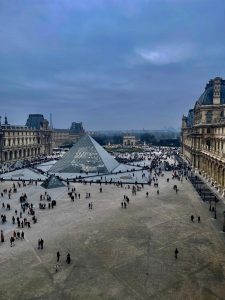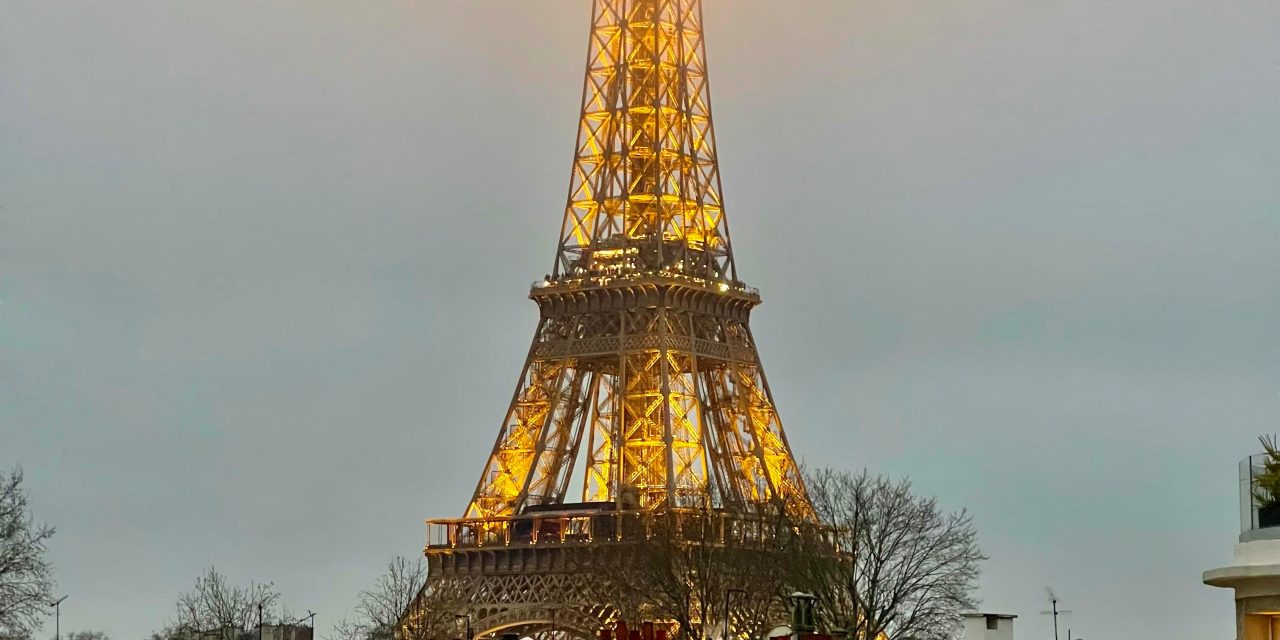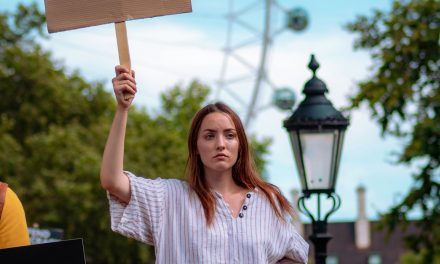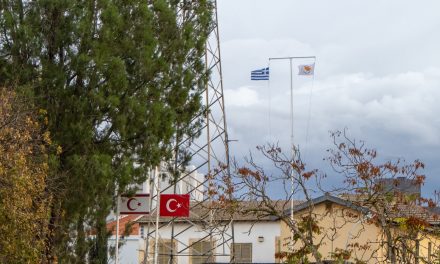The Paris 2024 Olympics left behind a city transformed bringing visible progress in infrastructure and tourism, but also sparking debates over rising living costs, sustainability, and urban displacement. This report explores the multifaceted legacy of the Games.
-
Saint-Denis: A New Chapter for Paris?
The Paris 2024 Olympics have triggered a wave of urban development in Saint-Denis, a historically working-class suburb north of Paris. Long marked by industrial decline and socio-economic challenges, the area underwent significant redevelopment as part of the Olympic preparations, with investments targeting housing, infrastructure, and public spaces.
One of the most notable projects was the Olympic Village, now converted into a residential complex. According to the French Institute of Urban Planning It includes over 3,000 housing units, a mix of private and affordable housing, aimed at addressing the region’s housing shortage. Additionally, the expansion of the Grand Paris Express metro line has improved connectivity, linking Saint-Denis more effectively to central Paris and surrounding areas.
housing shortage. Additionally, the expansion of the Grand Paris Express metro line has improved connectivity, linking Saint-Denis more effectively to central Paris and surrounding areas.
Thomas Lefevre, an Urban planner who worked in the Olympic project said “Honestly, the Olympics brought so much life to the city. It wasn’t just about the sports; it was about the entire atmosphere that Paris created. Thanks to the Games, France had the chance to showcase its culture on a global stage. For example, the Opening Ceremony was incredible—it wasn’t held in a stadium like usual but along the Seine River. It mixed everything that makes France special: traditional music, modern performances, and even luxury fashion, with brands like Louis Vuitton taking part.
The tourists who came here didn’t just see the usual attractions like the Eiffel Tower or Notre Dame. They were introduced to the local neighborhoods, the food markets, and even some of the lesser-known museums. It felt like Paris was saying, ‘This is who we really are,’ and people loved it. It gave them a reason to see us as more than just a postcard city.
However, these changes have not been without controversy. A report by the French Institute of Urban Planning highlighted the risk of gentrification, noting that property values in Saint-Denis have already begun to rise. Long-time residents fear being priced ou
t of their neighborhoods as wealthier tenants and investors move in, driven by the area’s improved infrastructure and amenities.
Saint-Denis has undoubtedly benefitted from the visibility and resources brought by the Olympics. However, as experts from the University of Paris suggest in their analysis, the true test lies in whether these changes will genuinely uplift the local community or serve as another example of urban displacement in the name of progress.
-
A Green Olympics: Success or Marketing?
The Paris 2024 Olympics were marketed as the most sustainable Games in history, with ambitious goals to reduce carbon emissions, reuse infrastructure, and promote environmentally friendly practices. While some of these initiatives were successful, others have been criticized as falling short of their promises.
A key achievement was the cleaning of the Seine River, a project that enabled open-water swimming events during the Games. This effort addressed decades of pollution, involving major investments in water treatment and infrastructure upgrades. According to a report by the Paris City Council, the river’s water quality improved significantly, allowing it to meet European standards for recreational use. However, maintaining this progress requires ongoing investment, and environmental groups, such as France Nature Environnement, have expressed concerns about whether this momentum will be sustained post-Olympics.
Additionally, the use of existing venues, such as the Stade de France and Parc des Princes, minimized the need for new construction. Temporary structures, like the beach volleyball arena near the Eiffel Tower, were designed to be dismantled and repurposed. A report from the International Olympic Committee (IOC) praised these efforts, stating that Paris had set “a new benchmark for sustainable urban planning in mega-events.”
Despite these successes, critics argue that the carbon footprint of the Games remained significant. A study by the Institute for Climate Economics (I4CE) estimated that total emissions from construction, transportation, and tourism exceeded initial projections. Activists have also pointed out that some green initiatives, such as carbon offset programs, lacked transparency and tangible results.
Furthermore, while the Games increased awareness of sustainability, their short-term nature highlights a broader issue: how to ensure long-term environmental impact. Greenpeace France noted that many of the promises made during the event were symbolic, aimed more at enhancing the Olympic brand than creating lasting change.
Thomas Lefèvre, an urban planner involved in the Olympic Village project, stated: ‘The infrastructure improvements in Saint-Denis are transformative, but their long-term success depends on whether they truly benefit local communities

-
The Good and the Bad: Voices from Paris
Thanks to the Olympic Games, France was able to showcase its rich culture to the world on an unprecedented scale. The event wasn’t just about sports; it became a cultural celebration that highlighted everything Paris has to offer. Tourists had the opportunity to dive deeper into the essence of the city—not just its iconic landmarks like the Eiffel Tower or the Louvre, but its vibrant neighborhoods, local traditions, and culinary delights.
The Olympic Opening Ceremony was a prime example of how France blended modern spectacle with cultural heritage. By featuring traditional French music, world-class performances, and a touch of Parisian luxury—symbolized by partnerships with brands like Louis Vuitton—it allowed audiences worldwide to experience the unique elegance and creativity that define French culture.
The Games left behind more than just memories—they fostered connections. Tourists who visited Paris during this period were able to form a deeper appreciation for its art, history, and way of life. For many, it was an invitation to return, ensuring that the positive.
While the Paris 2024 Olympics brought a temporary economic boost, particularly in tourism and hospitality, the long-term financial impact has raised concerns. The Games cost over €8 billion, a significant portion funded by taxpayers. Critics argue that these funds could have been better allocated to address pressing local issues such as housing and healthcare.
Small businesses, which were expected to benefit from the influx of visitors, reported mixed results. Many struggled to compete with larger, established brands that dominated the Olympic marketplace. Additionally, some experts warn that the economic gains were largely concentrated in the short term, leaving doubts about whether the city will see meaningful, sustained growth in the years to come.
-
Interview with an urban planner
Expert Insights: Balancing Progress and Community
Ibai Lema: Do you see any downsides or areas for improvement?
Thomas Lefevre:
“Of course, it wasn’t perfect. One of the biggest concerns for me is the rising cost of living in some parts of the city, especially in areas like Saint-Denis. The developments were impressive, but they’ve also made rents go up, and I know some people who are already struggling to stay in their neighborhoods.
I also think that while the focus on tourism was great, it sometimes felt like the event was more for visitors than for us, the people who live here. The extra crowds, traffic, and noise were difficult to manage at times, and not everyone felt included in the celebrations.
Finally, with all the talk about sustainability, I wonder if the promises were fully met. Cleaning the Seine was a great achievement, but will it stay that way? And what about the emissions from all the construction and travel? We need to make sure the legacy is as green as they said it would be, or it will feel like a missed opportunity.”
The Paris 2024 Olympics have undeniably left a lasting mark on the city. While they successfully showcased France’s cultural and sporting excellence, revitalized urban areas like Saint-Denis, and provided a temporary economic boost, they also highlighted underlying challenges. Rising living costs, questions about sustainability, and the risk of gentrification remain pressing concerns for many residents.
The Games were a moment of global celebration, but their true legacy will be defined by what happens next. Will the infrastructure and investments genuinely benefit local communities? Can Paris maintain the environmental gains it promised? These are the questions the city must answer in the coming years.
Paris now stands at a crossroads: between being a model for sustainable, inclusive urban transformation or becoming another example of the complexities that come with hosting global mega-events. The story of the Paris Olympics is far from over—it’s just the beginning of a new chapter for the city.




